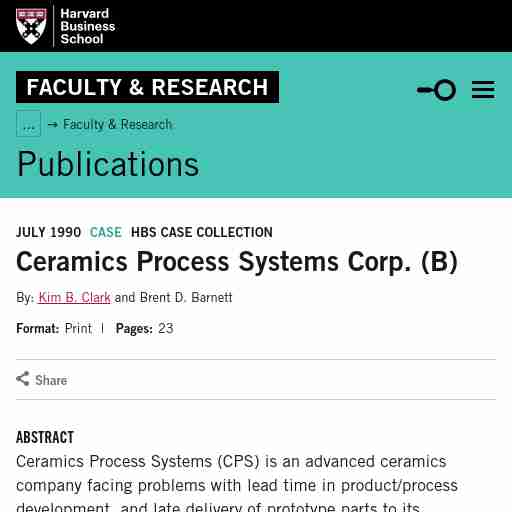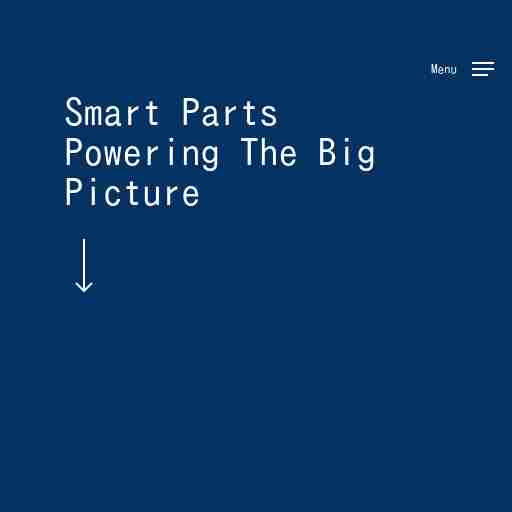Ceramics Process Systems Corp (CPS) is a leading manufacturer of advanced ceramics and ceramic components. With over 30 years of experience, CPS has established itself as a trusted supplier to industries such as aerospace, defense, medical, and semiconductor. In this article, we will take a closer look at the company, its products, and its manufacturing process.
Founded in 1985, CPS is headquartered in Salem, New Hampshire. The company specializes in the design and manufacture of custom ceramic components for high-performance applications. CPS has a team of experienced engineers and technicians who work closely with customers to develop solutions that meet their specific requirements.
CPS offers a wide range of advanced ceramics and ceramic components for various applications. Some of its popular products include:
CPS uses a variety of manufacturing processes to produce its advanced ceramics and ceramic components. The process typically involves the following steps:
Ceramics Process Systems Corp products offer several advantages over traditional materials such as metals and plastics. Some of these benefits include:
CPS serves a wide range of industries including aerospace, defense, medical, semiconductor, and industrial.
CPS offers a variety of advanced ceramics and ceramic components such as alumina tubes, zirconia tubes, machinable ceramics, and ceramic insulators.
The manufacturing process used by CPS involves powder preparation, mixing, shaping, drying, sintering, and machining.
Ceramics Process Systems Corp is a leading manufacturer of advanced ceramics and ceramic components. With its experienced team of engineers and technicians and state-of-the-art manufacturing facilities, CPS has established itself as a trusted supplier to industries such as aerospace, defense, medical, semiconductor. Its products offer several advantages over traditional materials such as metals and plastics. If you are looking for high-performance ceramic components for your application needs, CPS can provide customized solutions that meet your specific requirements.

Ceramics Process Systems (CPS) is an advanced ceramics company facing problems with lead time in product/process development, and late delivery of prototype ... JULY 1990 CASE HBS CASE COLLECTION Ceramics Process Systems Corp. (B) By: Kim B. Clark and Brent D. Barnett Ceramics Process Systems (CPS) is an advanced ceramics company facing problems with lead time in product/process development, and late delivery of prototype parts to its customers. Engineering is confronted with difficult technical problems and multiple objectives (i.e., meet customer requirements for prototype parts, build technical capability). Kathryn Sundback, head of development for molded products, must deal with the lead time and delivery problems on current products while making choices about and allocating resources to several new projects that marketing has developed. The case gives students the opportunity to examine engineering capacity, the nature of the development process, managing the set of projects as a whole (i.e., mix of project type, resource allocation) and customer interaction in a dynamic, technical, and market environment. May be used with Ceramics Process Systems Corp. (A). Product Development; Business Processes; Management Practices and Processes; Supply Chain Management; Machinery and Machining; Goals and Objectives; Resource Allocation; Customer Satisfaction; Customer Value and Value Chain; Manufacturing Industry Clark, Kim B., and Brent D. Barnett. "Ceramics Process Systems Corp. (B)." Harvard Business School Case 691-006, July 1990. SAM BERNARDS: A CAREER IN BUILDING BUSINESSES By: Kim B. Clark and Sarah Eyring KARIN VINIK AT SOUTH LAKE HOSPITAL (B)-(D)

CPS is a world-leader in developing advanced materials solutions for transportation, energy, aviation, defense, and oil & gas industries. Smart Parts Powering The Big Picture Advanced materials. Superior performance. Metal matrix composites that keep you at the forefront of your industry. CPS Technologies is an industry-leader in developing proprietary, advanced materials solutions for the transportation, energy, aviation, defense, and oil & gas industries. Our flagship solution is a cutting-edge metal matrix composite (MMC), a class of material with superior properties across thermal conductivity, thermal expansion matching, stiffness, and weight. When compared against conventional materials, these AlSiC-based products improve performance and reliability across a variety of applications, including hermetic packages, flip chip lids, IGBT baseplates, liquid cold plates, and more. AEROSPACE/DEFENSE Our proprietary technology supports reliability across all avionics, communication, radar, and military defense applications. TRANSPORTATION Extend the lifespan and viability of train and subway-based IGBT Power Modules with AlSiC baseplates that increase module life 10X over. ENERGY/INDUSTRIAL AlSiC baseplates reduce mechanical stresses in IGBT power modules, offering increased module life and efficiency for energy, oil, and gas companies. TELECOM/COMPUTING Eliminate the stresses of thermal cycling and achieve higher reliability across all telecom, computing, and cellular applications. CPS Technologies Corporation Announces SBIR Contract Award for Lightweight UH-60 Flooring Development CPS Technologies Corporation Receives Significant Hermetic Packaging Order from Industry Leading Aerospace Electronics Manufacturer
---

Starfire Systems, Inc (SSI) is a specialty material company focused on Polymer Derived Ceramics (PDC) and its Polymer-to-Ceramic TM technology. 518-899-9336 | Fax: 518-289-2261 info@starfiresystems.com Explore how our materials boost performance and design in aerospace applications. Starfire Systems, Inc (SSI) is a specialty material company focused on Polymer Derived Ceramics (PDC) and its Polymer-to-Ceramic TM technology. SSI’s core business is synthesis of silicon-based pre-ceramic polymers and SOL-GEL derived oxide forming materials which are used in polymer matrix composites, oxide and SIC based ceramic matrix composite (CMC) fabrication. SSI’s high temperature materials are useful in a variety of applications where durable, lightweight and high temperature complex shaped CMC’s are required. In addition, SSI developed a broad range of specialty silane compounds which are used as CVD precursors in semiconductor dielectric coatings, matrix densification and high purity intermediates for synthesizing pharmaceuticals. Explore how our materials boost performance and design in aerospace applications. Find out how Starfire Systems’ advanced materials can provide crucial protection for law enforcement and military personnel. Enhance electronic design capabilities with of Starfire Systems’ Polyramic Resins. Strengthen your industrial products with Starfire Systems’ Polymer-to-Ceramic technologies. Improve performance through lightweight, tough, thermally stable PTCC composites. Find out how Starfire Systems offers Military Grade (MG) solutions which are capable to function in the environments. Find out how Starfire Systems’ technology can enhance the safety and performance of nuclear fuel.

... Systems, Inc EQUIPMENT WORLD-CLASS REQUIRES WORLD-CLASS RESULTS Worldwide ... Smart System Process Control Wax Prep and Transfer · Ready-To-Ship Machines ... LIMITLESS POSSIBILITIES • CONTACT A SALES AGENT TODAY • (845) 471-7630